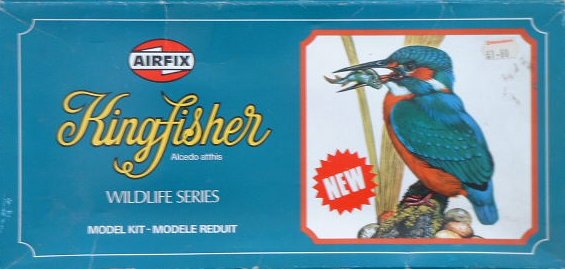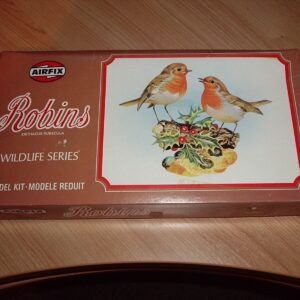Description
Darting nimbly to catch a minnow or stickleback, the brightly-coloured Kingfisher is an easily recognisable inhabitant of Britain's freshwater streams, lakes and marshes. Both male and female birds have the same striking blue-green upper surface, orange-chestnut colouring below, with white throat and patch on each side of the neck. Kingfishers catch their prey from a fast shallow dive having located it from a perch or from a hovering position. They beat their catch on a branch before swallowing it, head first, for a fish swallowed tail first would choke the bird as its fins and scales opened. A hole in a river bank some two to three feet long is the Kingfisher's usual nesting place and between April-August the female bird lays two batches of 6-7 white-coloured eggs. Fed by both sexes, the young fly after 23-27 days. A bad winter can take a heavy toll of Kingfishers as happened in 1961-62 when frozen waters cut off the birds' food supply. – Taken from the 17th edition catalogue (1980)
Additional information
| Airfix Series (first appearance) | 4 |
|---|---|
| Rarity of early version | Scarce |
| First Issued | 1980 |
| Catalogue Ref - 17th Edition (1980) | 04831-8 |
| Catalogue Ref - 1982 Edition | 04831-8 |
| Catalogue Ref - 1983 Edition | 9 04831 |
| Catalogue Ref - 1984 Edition | 9 04831 |










